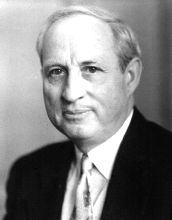Oscar Riddle
This article needs additional citations for verification. (March 2013) |
Oscar Riddle | |
|---|---|
 | |
| Born | September 27, 1877 |
| Died | November 29, 1968 (aged 91) |
| Academic background | |
| Education |
|
Oscar Riddle (September 27, 1877 – November 29, 1968) was an American biologist. He is known for his research into the pituitary gland and for isolating the hormone prolactin.
Early career
Riddle was born in Cincinnati, Indiana, to Jonathan Riddle, Jr. and Amanda Emeline Carmichael Riddle where he was raised with his eight siblings. He received a B.S. in biology from Indiana University in 1902 and a PhD in zoology at the University of Chicago in 1907. He taught physiology and biology in Saint Louis, Missouri and Puerto Rico. Intent on becoming an ichthyologist, Riddle embarked on natural history expeditions to the Orinoco River in South America and Cuba. Upon his return, a lecture on evolution sparked his interest and in 1912 he became a research associate at the Carnegie Institution's Cold Spring Harbor Laboratory in Long Island.[1] He served in the New York National Guard from 1916 to 1918 and the United States Army from 1918 to 1920, where he was stationed in Dijoux and Bordeaux, France.[2]
Research
In his time, Riddle was one of the top biologists in the United States. His research spanned endocrinology, the physiology of reproduction, animal pigmentation, and the nature and functional basis of sex. He is most remembered for his research into the major pituitary hormone prolactin. Riddle studied under Jacques Loeb, and he and his colleagues were the first to isolate prolactin, which was named by Riddle in 1932.[3] Riddle discovered that prolactin injections inhibited gonad growth in males and produced maternal behavior in females. His research demonstrated that prolactin and other hormones of the frontal lobe are disintegrated by the enzyme trypsin. His work also showed that growth is a synergistic response to the hormones prolactin and thyrotropin. He earned a degree in law in 1933 and was featured on the cover of TIME in January 1939. Riddle retired in 1945.
Humanism
Riddle was a devout atheist and held the conviction that religion poses a serious threat to scientific advancements.[4] He garnered national attention for a speech debunking superstition in 1936. His speech was delivered to the American Association for the Advancement of Science and was published in the journal Science and covered by the New York Times. In 1958, Riddle was named the Humanist of the Year by the American Humanist Association. He was president of the American Rationalist Federation in 1959 and 1960.
In 1937, Riddle married Leona Lewis, a music teacher. They had no children.
He died of prostate cancer at the age of 91 in Plant City, Florida, in 1968.
Publications
- Endocrines and Constitution in Doves and Pigeons (1947)
- The Unleashing of Evolutionary Thought (1952)
References
- ^ Science: Pituitary Master. TIME. 9 January 1939.
- ^ W. Corner, George (1994). Biographical Memoirs V. 65 (PDF). Washington D.C.: National Academy of Sciences. p. 438. doi:10.17226/568. ISBN 978-0-309-02239-2.
- ^ Riddle, O., Bates R. W. & Dykshorn S. W. (30 June 1933). "The Preparation, Identification and Assay Of Prolactin-A Hormone Of The Anterior Pituitary-". American Journal of Physiology. 105 (1): 191–216.
{{cite journal}}: CS1 maint: multiple names: authors list (link) - ^ Humanist profile: Oscar Riddle 1958: Humanist of the Year. American Humanist Association.
